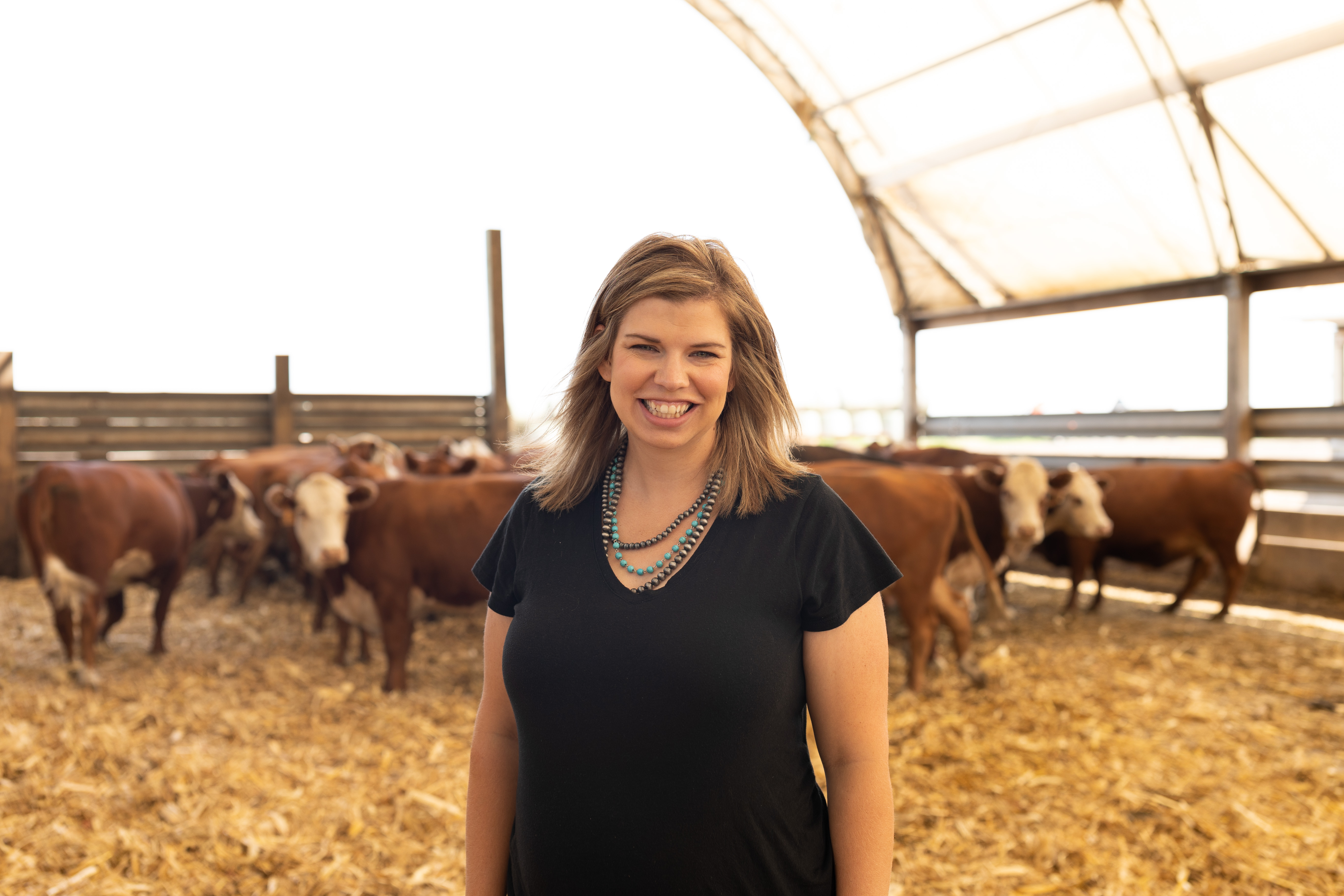Love Yourself on Valentine’s Day
February 6, 2023
By Kriss Nelson, Iowa Soybean Association
Will “I” be my Valentine? Here are some ways you can fall back in love with yourself and recognize the signs of working toward better mental health.
On Feb. 14, love can be for anyone, including yourself.
Sara Preston realizes this is no simple task, but she also understands that she must care for herself to be the best mom, farmer and farm wife.
With three children ages 6, 3 and 1, Preston, from Swea City, says it is easy to put her needs last.
“Every day, there are things that need to be done on the farm and addressed for each child, and your needs get put to the bottom of the list, but you need to fill your cup,” she says. “If you keep pouring into other people, your cup becomes empty. You have nothing else to give them.”
Preston says finding what brings joy to your heart, whether taking time to read, starting the day with devotions, taking a hot bath, going for a walk or drinking enough water, can be good for your soul.
“I can ultimately be a better person and a better mom if I have that time,” she says. “Being able to do some things for me and getting over the mom guilt of sometimes putting yourself first. Mom guilt is real but we need to do better about giving ourselves grace and showing ourselves the same love that we give to the rest of our family.”

Please note, by clicking the following links, you’ll be leaving a partially funded checkoff site.
FebYOUary
Self-love and self-care are vital for mental health, but if circumstances are happening beyond your control and you feel sad, have mood swings and withdraw from friends, family or activities, you may need help.
Dan Hanrahan, a farmer near Cumming, understands the importance of loving oneself and shares his mental health struggles and stories of his farm in his blog True Stories and Tall Tales.
Circumstances hit the hardest for Hanrahan in 2012. He was going through a divorce, had just started a new business and his father received a difficult health diagnosis. Emotions, he says, were at an all-time high.
“I felt like, in my case, I was getting rocked by pretty big waves,” he says. “It’s common to have a change in a job, deal with the loss of a relationship or loved one – any of those would be substantial changes, and I was being hit with a couple of them at the same time.”
Hanrahan says you do not have to navigate those rough waters alone.
“Often, we try to get back to smooth sailing ourselves, and there are folks that can help us,” he says.
Hanrahan sought help from a mental health professional who helped him work through his emotions.
“Find folks who can help you think through what it is you want to do,” he says. “Maybe you find it in your church, with a therapist or opening up and visiting with a friend. These interactions aren’t about somebody telling you what to do, but rather it’s about helping lead you to clearer thinking.”
Hanrahan says that no matter the size of your problem, it can still affect your mental health.
“I think folks get into a situation where they think there are people who have it worse than they do, that maybe their problems aren’t that big,” he says. “But those things are worth visiting with someone about to better navigate life.”
Mental Health First Aid
Preston’s parents taught her if you have a problem with something, she should be part of the solution. And a problem she was having was the stigma surrounding mental health.
Her solution was to enroll in a Mental Health First Aid course.
“Mental health disorders are something people cannot control. It is just like if somebody broke their arm; but people feel so guilty if they suffer from depression or anxiety,” she says. “As a community, we need to understand mental health and be supportive.”
Mental Health First Aid is a skills-based training course that teaches participants about mental health and substance abuse issues.
“It’s learning about your mental health, but also being equipped to notice signs in those with mental health disorders,” says Preston. “It could be your spouse, child or neighbor.”
Preston has seen mental health disorders increase in her rural community and the farming industry.
“Farmers are two times more likely to complete suicide compared to other occupations,” she says. “The stress, long hours and uncontrollable dynamics that go into farming can take a toll. Farmers need to make themselves a priority and as an industry, we need to recognize this situation.”
No Act of Love Is Too Small
If you have noticed a change in someone’s personality or habits, it is OK to confront that person and share your concerns.
One concern may be if they feel they may want to complete suicide. If so, you can direct the to the suicide and crisis hotline at 988 or the Crisis Text Line, where they can text HOME to 741741 to be connected with a volunteer crisis counselor.
Most importantly, do not leave them alone.
“Stay with them, be the person they know cares about them and stay with them until additional help comes,” she says.
Others may struggle but not want to hurt themselves.
“You can be a non-judgmental friend they can come to and talk through some of their concerns,” she says.